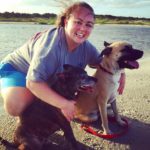Array
(
[0] => WP_Term Object
(
[term_id] => 1304
[name] => #HalfTheStory
[slug] => half-story
[term_group] => 0
[term_taxonomy_id] => 1304
[taxonomy] => category
[description] =>
[parent] => 0
[count] => 25
[filter] => raw
[cat_ID] => 1304
[category_count] => 25
[category_description] =>
[cat_name] => #HalfTheStory
[category_nicename] => half-story
[category_parent] => 0
)
[1] => WP_Term Object
(
[term_id] => 773
[name] => 1_EDITED
[slug] => edited
[term_group] => 0
[term_taxonomy_id] => 773
[taxonomy] => category
[description] => Indicates Drafts have been Edited
[parent] => 0
[count] => 2
[filter] => raw
[cat_ID] => 773
[category_count] => 2
[category_description] => Indicates Drafts have been Edited
[cat_name] => 1_EDITED
[category_nicename] => edited
[category_parent] => 0
)
[2] => WP_Term Object
(
[term_id] => 16
[name] => After the Dish
[slug] => after-the-dish
[term_group] => 0
[term_taxonomy_id] => 16
[taxonomy] => category
[description] =>
[parent] => 0
[count] => 10
[filter] => raw
[cat_ID] => 16
[category_count] => 10
[category_description] =>
[cat_name] => After the Dish
[category_nicename] => after-the-dish
[category_parent] => 0
)
[3] => WP_Term Object
(
[term_id] => 17
[name] => Creative Outlets
[slug] => creative-outlets
[term_group] => 0
[term_taxonomy_id] => 17
[taxonomy] => category
[description] =>
[parent] => 0
[count] => 112
[filter] => raw
[cat_ID] => 17
[category_count] => 112
[category_description] =>
[cat_name] => Creative Outlets
[category_nicename] => creative-outlets
[category_parent] => 0
)
[4] => WP_Term Object
(
[term_id] => 13
[name] => Culture/Travel
[slug] => culture-travel
[term_group] => 0
[term_taxonomy_id] => 13
[taxonomy] => category
[description] =>
[parent] => 0
[count] => 103
[filter] => raw
[cat_ID] => 13
[category_count] => 103
[category_description] =>
[cat_name] => Culture/Travel
[category_nicename] => culture-travel
[category_parent] => 0
)
[5] => WP_Term Object
(
[term_id] => 12
[name] => Faith
[slug] => faith
[term_group] => 0
[term_taxonomy_id] => 12
[taxonomy] => category
[description] =>
[parent] => 0
[count] => 68
[filter] => raw
[cat_ID] => 12
[category_count] => 68
[category_description] =>
[cat_name] => Faith
[category_nicename] => faith
[category_parent] => 0
)
[6] => WP_Term Object
(
[term_id] => 11
[name] => Health
[slug] => health
[term_group] => 0
[term_taxonomy_id] => 11
[taxonomy] => category
[description] =>
[parent] => 0
[count] => 113
[filter] => raw
[cat_ID] => 11
[category_count] => 113
[category_description] =>
[cat_name] => Health
[category_nicename] => health
[category_parent] => 0
)
[7] => WP_Term Object
(
[term_id] => 995
[name] => HRW Music Group
[slug] => hrw-music-group
[term_group] => 0
[term_taxonomy_id] => 995
[taxonomy] => category
[description] =>
[parent] => 0
[count] => 10
[filter] => raw
[cat_ID] => 995
[category_count] => 10
[category_description] =>
[cat_name] => HRW Music Group
[category_nicename] => hrw-music-group
[category_parent] => 0
)
[8] => WP_Term Object
(
[term_id] => 15
[name] => Inspirational People
[slug] => inspirational-people
[term_group] => 0
[term_taxonomy_id] => 15
[taxonomy] => category
[description] =>
[parent] => 0
[count] => 154
[filter] => raw
[cat_ID] => 15
[category_count] => 154
[category_description] =>
[cat_name] => Inspirational People
[category_nicename] => inspirational-people
[category_parent] => 0
)
[9] => WP_Term Object
(
[term_id] => 14
[name] => Overcoming Challenges
[slug] => overcoming-challenges
[term_group] => 0
[term_taxonomy_id] => 14
[taxonomy] => category
[description] =>
[parent] => 0
[count] => 220
[filter] => raw
[cat_ID] => 14
[category_count] => 220
[category_description] =>
[cat_name] => Overcoming Challenges
[category_nicename] => overcoming-challenges
[category_parent] => 0
)
[10] => WP_Term Object
(
[term_id] => 10
[name] => Sports
[slug] => sports
[term_group] => 0
[term_taxonomy_id] => 10
[taxonomy] => category
[description] =>
[parent] => 0
[count] => 75
[filter] => raw
[cat_ID] => 10
[category_count] => 75
[category_description] =>
[cat_name] => Sports
[category_nicename] => sports
[category_parent] => 0
)
[11] => WP_Term Object
(
[term_id] => 1
[name] => Uncategorized
[slug] => uncategorized
[term_group] => 0
[term_taxonomy_id] => 1
[taxonomy] => category
[description] =>
[parent] => 0
[count] => 9
[filter] => raw
[cat_ID] => 1
[category_count] => 9
[category_description] =>
[cat_name] => Uncategorized
[category_nicename] => uncategorized
[category_parent] => 0
)
[12] => WP_Term Object
(
[term_id] => 652
[name] => Wish Dish Staff Blog
[slug] => wish-dish-staff-blog
[term_group] => 0
[term_taxonomy_id] => 652
[taxonomy] => category
[description] =>
[parent] => 0
[count] => 11
[filter] => raw
[cat_ID] => 652
[category_count] => 11
[category_description] =>
[cat_name] => Wish Dish Staff Blog
[category_nicename] => wish-dish-staff-blog
[category_parent] => 0
)
)




